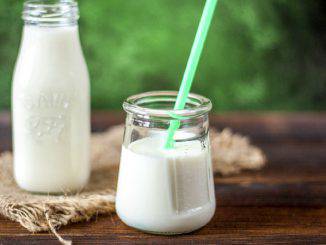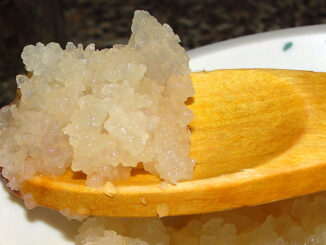
If you’re looking for a delicious, probiotic-packed drink that’s also incredibly healthy, you’ve likely come across both kombucha and water kefir. Both are fermented drinks, and both are full of good-for-you bacteria that can help support digestion and overall health.
But when it comes to choosing between the two, it’s important to know which one is better. Water kefir has been gaining popularity lately as a delicious addition to any diet – but it’s essential to understand its advantages over kombucha. Whether you’re a fan of both drinks and want to make an informed decision, or if you’re just starting out in the world of probiotic-rich beverages and need help navigating what’s out there, this post will give you the information you need!
In this post, we’ll explore the surprising benefits of water kefir over kombucha – from taste, to nutrition, to lactose content, and more. So, if you’re looking for a healthier alternative to your favorite drinks, read on to discover the advantages of water kefir over kombucha!
Which is the best homemade probiotic? Water kefir or kombucha or neither?
Determining the “best” homemade probiotic between water kefir and kombucha is subjective and depends on personal preference. Both water kefir and kombucha offer potential health benefits as probiotic-rich beverages, but the specific benefits can vary based on individual needs and preferences. It’s worth noting that the effectiveness of probiotics can vary among individuals due to factors such as the specific strains of microorganisms, concentration, and the overall health of an individual’s gut microbiome.
Here are some considerations to help you decide:
- Taste: Water kefir and kombucha have distinct flavors. Water kefir is usually milder, slightly tangy, and can be flavored with fruits or herbs. Kombucha has a more pronounced tangy taste and can vary in flavor profiles based on the type of tea used. It’s recommended to taste both beverages and see which flavor you prefer.
- Fermentation process: Water kefir and kombucha have different fermentation processes. Water kefir ferments in a sugar-water solution using kefir grains, while kombucha ferments in sweetened tea using a SCOBY. The fermentation times and requirements may vary. Consider the convenience and ease of the fermentation process when choosing which one to make at home.
- Nutrient content: Water kefir and kombucha can contain various beneficial compounds due to the fermentation process, including organic acids, enzymes, and vitamins. The specific nutrient content can depend on factors like the ingredients used and fermentation conditions. However, it’s important to note that the nutrient content may vary, and the quantities of these compounds can be relatively small.
Ultimately, the “best” homemade probiotic is the one that you enjoy consuming and can incorporate into your routine consistently. Both water kefir and kombucha can be part of a balanced diet and a healthy lifestyle. If you’re unsure, you could experiment with making both and see which one suits your taste preferences and provides the desired benefits. Remember that it’s always a good idea to start with small quantities and monitor how your body responds. If you have any specific health concerns or conditions, consult with a healthcare professional for personalized advice.
What’s the difference between kefir and kombucha tea? Which one has more health benefits than the other?
Water kefir and kombucha tea are both fermented beverages that offer potential health benefits, but they differ in terms of ingredients, fermentation process, and taste.
Water kefir, also known as tibicos, is made by fermenting water with kefir grains, which are clusters of bacteria and yeast. The grains typically contain a mixture of beneficial bacteria, yeasts, and polysaccharides. During the fermentation process, the bacteria and yeast consume the sugars in the water, producing carbon dioxide, alcohol (in small amounts), and various organic acids. This process results in a mildly fizzy, tangy beverage. Water kefir can be flavored with fruit, herbs, or spices to enhance its taste.
Kombucha tea, on the other hand, is made by fermenting sweetened black or green tea with a symbiotic culture of bacteria and yeast (SCOBY). The SCOBY, often referred to as the “kombucha mother,” is a cellulose-based structure that contains a mixture of bacteria and yeast. During fermentation, the bacteria and yeast consume the sugars in the tea, producing carbon dioxide, alcohol (usually in trace amounts), and a range of organic acids like acetic acid and glucuronic acid. Kombucha is typically tangy, slightly sweet, and effervescent.
In terms of health benefits, both water kefir and kombucha offer potential advantages due to their probiotic content. Probiotics are beneficial microorganisms that can help support gut health by promoting a balanced gut microbiome. The specific strains and concentrations of probiotics can vary in these beverages, depending on the fermentation process and ingredients used. Both water kefir and kombucha may contribute to improved digestion, immune function, and overall gut health, although scientific research on their specific effects is limited.
It’s challenging to determine which one has more health benefits since individual responses to these beverages can vary. Some people may find one more beneficial than the other based on their unique microbiome and personal preferences. It’s worth noting that the health benefits of probiotic-rich foods and beverages should be considered as part of a balanced diet and overall healthy lifestyle.
If you’re considering incorporating water kefir or kombucha into your routine, it’s advisable to start with small amounts and observe how your body responds. If you have any specific health concerns or conditions, it’s always best to consult with a healthcare professional for personalized advice.
What is a kombucha drink and its benefits?
Kombucha is a fermented tea drink that is slightly fizzy and contains beneficial bacteria and yeasts. It is slightly sweet and has a more complex flavor than kefir.
Kombucha is made by fermenting sweetened tea or green tea with a SCOBY (Symbiotic Colony of Bacteria and Yeast). This fermentation process results in the formation of beneficial bacteria, yeasts, enzymes, and other probiotics.
Kombucha is known for its many health benefits, including improved digestion, increased energy levels, improved mood, and boosted immune system. It also contains antioxidants, which can help protect against cell damage and improve overall health and well-being. Kombucha is also a great source of probiotics, which can help support digestion, immunity, and the absorption of nutrients in the body.
What is a water kefir drink and its benefits?
Water kefir is a fermented drink made with sugary water and kefir grains, which are a combination of beneficial bacteria and yeasts. It is a probiotic-rich drink that is known for its slightly sweet, slightly tart flavor. It is a great source of beneficial bacteria, yeasts, enzymes, and other probiotics.
Water kefir is known for its many health benefits, including improved digestion, increased energy levels, improved mood, and boosted immune system. It also contains antioxidants, which can help protect against cell damage and improve overall health and well-being. Water kefir is a great source of probiotics, which can help support digestion, immunity, and the absorption of nutrients in the body. It is also a great source of B vitamins, which are essential for healthy skin, liver, and nerves.
What are the main advantages of water kefir compared to kombucha?
Water kefir has several advantages over kombucha, making it a great choice for health-conscious individuals.
First, it contains more beneficial probiotics than kombucha, making it a great choice for those looking to increase their intake of beneficial bacteria. Kefir also contains beneficial yeasts, which help to support the digestive system and boost immunity. Water kefir is also a great choice for those who are lactose intolerant, as it contains no lactose.
Water kefir is also much easier and faster to make than kombucha. Kombucha typically takes 7-10 days to ferment, while water kefir takes only 24-48 hours. This is an important point, as the extended fermentation time of kombucha hides a higher risk of unwanted contamination.
Additionally, water kefir has a much lighter and more refreshing taste than kombucha, making it a great choice for those who don’t enjoy the stronger taste of kombucha.
Finally, water kefir is less acidic than kombucha, making it easier on the stomach and less likely to cause digestive upset. Overall, water kefir has several advantages over kombucha that make it a great choice for those looking for a healthier alternative to their favorite drinks. Whether you’re looking for a light, refreshing drink or are seeking the health benefits of probiotics, water kefir looks like a better option!
In conclusion, here are some of the main advantages of water kefir:
- It is easier to make. Water kefir is a more forgiving beverage to ferment, and it does not require as much time or attention as kombucha. You can typically make water kefir in 24-48 hours, while kombucha can take up to 7 days.
- It is caffeine-free. If you are sensitive to caffeine, water kefir is a good option, as it is naturally caffeine-free. Kombucha, on the other hand, is often made with black or green tea, which contains caffeine.
- It has a wider range of probiotic strains. Water kefir contains a wider range of probiotic strains than kombucha, which can be beneficial for gut health.
- It has a milder flavor. Water kefir has a milder flavor than kombucha, which some people prefer. Kombucha can have a strong, sour flavor that can be off-putting to some people.
Of course, there are also some advantages to kombucha. For example, kombucha contains more antioxidants than water kefir, and it may be more effective at boosting the immune system. Ultimately, the best choice for you will depend on your individual preferences and needs.
If you are looking for a simple, caffeine-free, and probiotic-rich beverage, water kefir is a great option.



